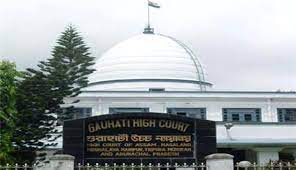 The Gauhati High Court in the case of Mahabir Tiwari vs. Union of India vide WP(C) No. 567 of 2024 dated 02.06.2025, held Notification No. 56/2023-Central Tax as ultra vires Section 168A of the CGST Act. The court emphasized that extension of time limits under Section 73(10) must be based on GST Council recommendations and force majeure circumstances, neither of which were present in this case. As a result, the demand and order-in-original based on this notification were quashed.
The Gauhati High Court in the case of Mahabir Tiwari vs. Union of India vide WP(C) No. 567 of 2024 dated 02.06.2025, held Notification No. 56/2023-Central Tax as ultra vires Section 168A of the CGST Act. The court emphasized that extension of time limits under Section 73(10) must be based on GST Council recommendations and force majeure circumstances, neither of which were present in this case. As a result, the demand and order-in-original based on this notification were quashed.
Facts of the Case: In this case, the petitioner challenged legality and validity of Notification No. 56/2023-Central Tax, dated 28-12-2023, which extended time limit for issuance of order under section 73. The Petitioner submitted that Section 168A of the CGST Act, 2017, vests power with the Government to extend time limit prescribed under CGST Act, 2017, in respect of the actions which cannot be completed or complied due to force majeure and in respect of financial year 2019-2020, the due date of issuance of order under Section 73 of the CGST Act, 2017 was 31.03.2024. However, the department vide notification No. 09/2023 dated 31.03.2023, extended the time limit prescribed under Section 73 of the CGST Act, 2017 till 31.03.2024, without there being any force majeure as required under Section 168A of the CGST Act, 2017, which was further extended up to 31.08.2024, vide Notification No. 56/2023-Central Tax, dated 28.12.2023, without there being any recommendation of the GST Council. Hence, any Order-in-Original (OIO) issued relying on this invalid notification including the OIO dated 29.08.2024 — is time-barred and illegal.
Issue: Whether Notification No. 56/2023-CT, extending the limitation period under Section 73(10), is valid in the absence of (i) a recommendation of the GST Council and (ii) force majeure conditions as required under Section 168A of the CGST Act.
Held that: The Court observed no natural disaster, epidemic, or other recognized force majeure event existed during the relevant period. The explanation to Section 168A was not satisfied. The Government acted unilaterally in issuing Notification No. 56/2023 without recommendation. Section 168A explicitly requires GST Council’s recommendation which held to be mandatory, not directory. The impugned Notification No. 56/2023-Central Tax, dated 28.12.2023, extended the limitation period under Section 73(10) for FY 2018–19 and 2019–20 to 30.04.2024 and 31.08.2024, respectively.
The Court held that Section 168A of the CGST Act empowers the Government to extend time limits only upon the recommendation of the GST Council and only in case of force majeure. The said extension was made without a valid recommendation of the GST Council and without any recorded existence of force majeure, thus rendering the notification ultra vires the CGST Act.
Reliance placed upon ruling in the case of Barkataki Print and Media Services v. Union of India (2024), wherein the Court reaffirmed that the Government cannot unilaterally exercise power under Section 168A.
Further, the Notification’s recital that it was issued “on recommendation of the Council” was held to be a colourable exercise of power.
Consequently, all consequential actions, including the Demand-cum-Show Cause Notice dated 30.05.2024 and the Order-in-Original dated 29.08.2024, were held to be unsustainable in law and were set aside.
To read the complete judgment 2025 Taxo.online 1017


